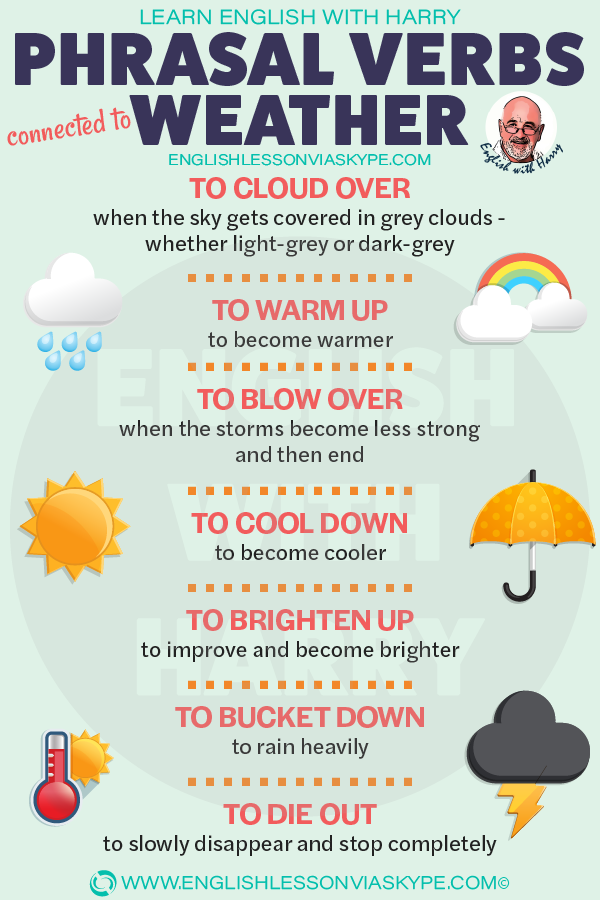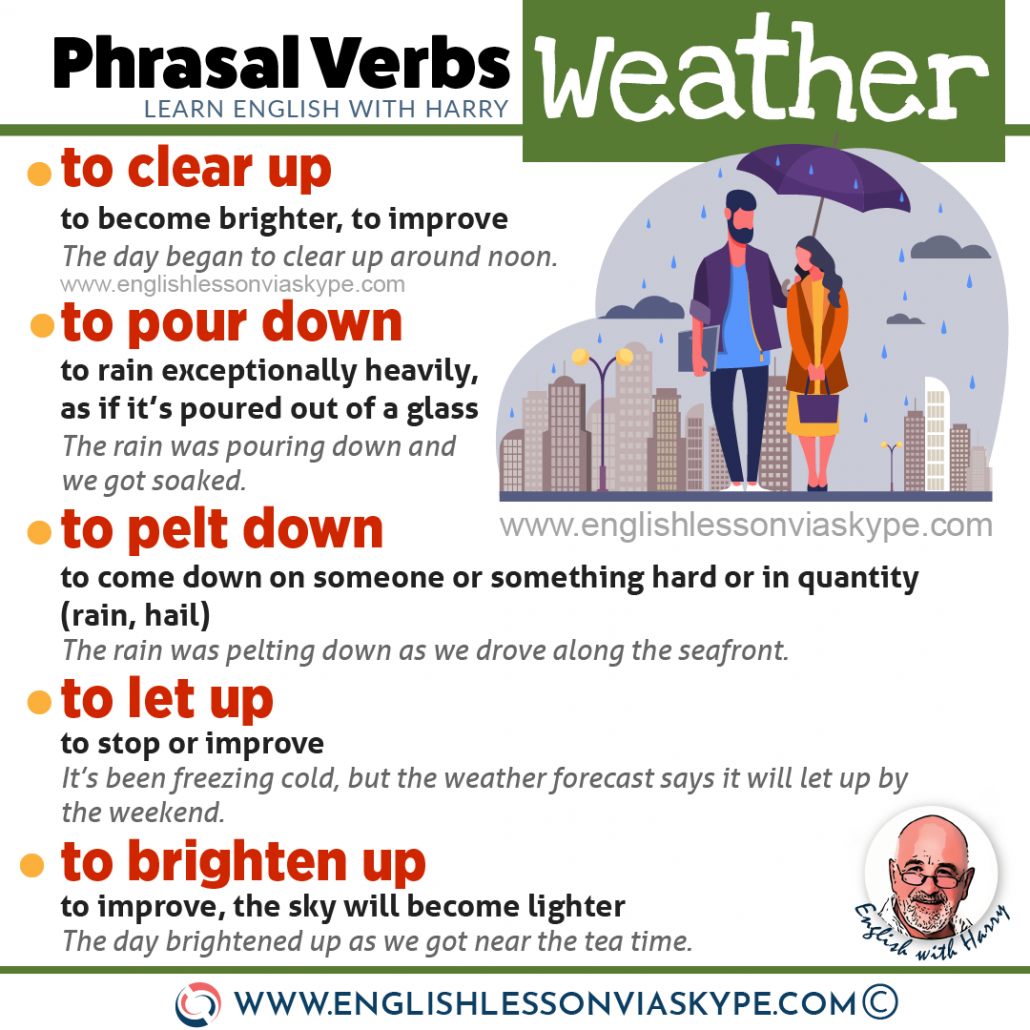list of weather phrasal verbs
Harry
Hi there, this is Harry and welcome to my English learning podcast where we try to help you to understand some aspects of the English language.
I help you with your conversational English, business English and a general understanding of certain grammar points.
10 Phrasal Verbs connected to Weather

So today, we’re going to look at some phrasal verbs and in this context, we’re going to look at themed phrasal verbs. So the theme for these phrasal verbs is those connected to the theme of weather.
Something we all like to talk about, and we all like to occupy ourselves. Whether you’re living in the UK or France or Spain or wherever the weather is always a very topical aspect. Particularly, in northern Europe.
So, let’s look at some phrasal verbs connected to weather.
improve english on a budget
Online English Courses from €7.99
to cloud over
Meaning: when the sky begins, and eventually, gets covered in grey clouds, whether light-grey or dark-grey.
So we can wake up and say:
So the day started brightly with sunshine and blue sky. As the day progressed it clouded over.
Meaning the clouds covered the sky.
Speak Better English with Harry - Episode 132
And at the beginning of the day, we can use two phrasal verbs or one phrasal verb with two different prepositions. We can say TO START OFF or TO START OUT.
For example:
The day started off bright
The day started out bright.
The meaning is exactly the same.
to start off/out
Meaning: to begin
The day started off bright but, as the day progressed, it changed.
Or
The day started off quite brightly but around lunch time it clouded over.
So I can include both of those phrasal verbs in that particular sentence.
The day started out quite brightly but, as the day progressed, it got gradually worse.
Phrasal Verbs related to Weather

Share! Help other students to improve English skills.
There are a couple of phrasal verbs that we can use in connection to very heavy rain.
to pour down
Meaning: to rain exceptionally heavily, as if it’s poured out of a glass
The rain was pouring down.
It was pouring down with rain.
to bucket down
Meaning: to rain heavily, more informal than TO POUR DOWN
Yesterday it bucketed down.
Finally, some weather phrasal verbs with a little brighter outlook.
to brighten up
Meaning: to improve, the sky will become lighter
Example:
The day brightened up as we got near to tea time.
to clear up
Meaning: to become brighter, to improve, it will stop being rainy or cloudy
The day began to clear up around noon.
10 Phrasal Verbs connected to Weather
to pick up
Meaning: to get better gradually
Example:
– The weather is not so good at the moment. Do you think the day would pick up?
– I think it will pick up later on.
We can also use TO PICK UP if we’re talking about wind speeds.
Winds will pick up later in the afternoon, becoming strong by the evening.
Meaning: wind speed will increase, winds will become stronger.
to die out
Meaning: to slowly disappear and stop completely
Example:
Today we have very strong winds and that has brought a lot of heavy rain but by later afternoon these winds and the heavy rain will begin to die out.
to let up
Meaning: to stop or improve
Example:
The weather recently has been freezing cold but the weather forecast says it will let up by the weekend.
Okay, so there are the phrasal verbs connected to weather:
- Cloud over
- Start out
- Start off
- Bucket down
- Pour down
- Brighten up
- Clear up
- Pick up
- Die out
- Let up
That’s the end of today’s episode. Listen to Speak Better English with Harry English learning podcast on iTunes, Spotify and Stitcher.
More information
For more information on English grammar rules, English collocations and English idioms, check out the links below:
10 Other ways to say GO AWAY in English
Intermediate English Travel Vocabulary





